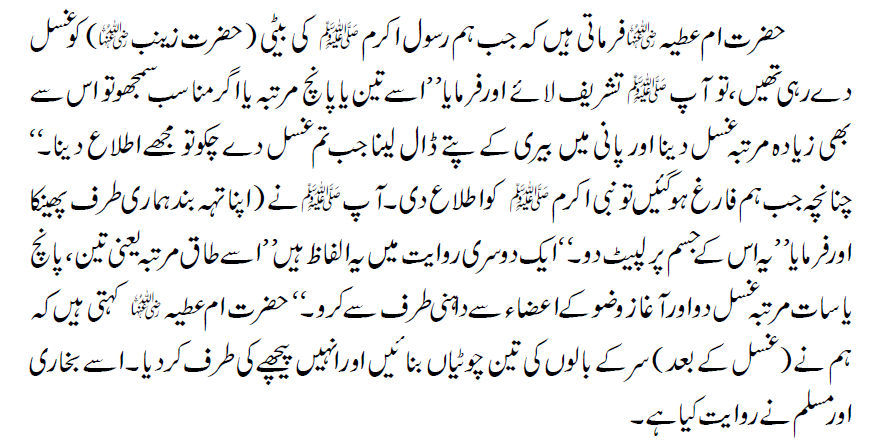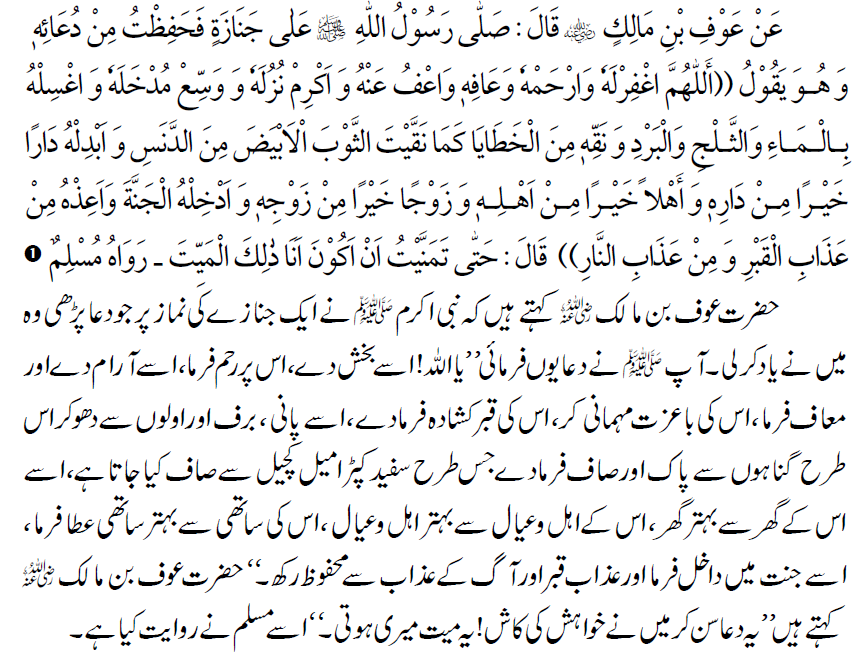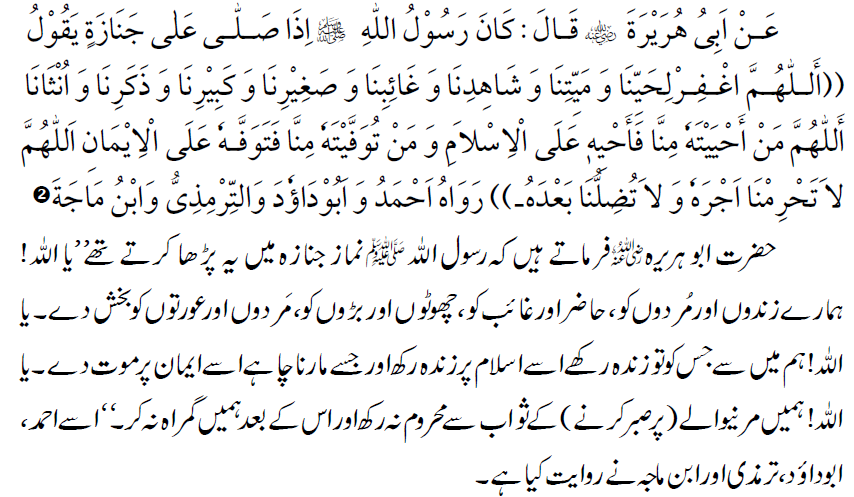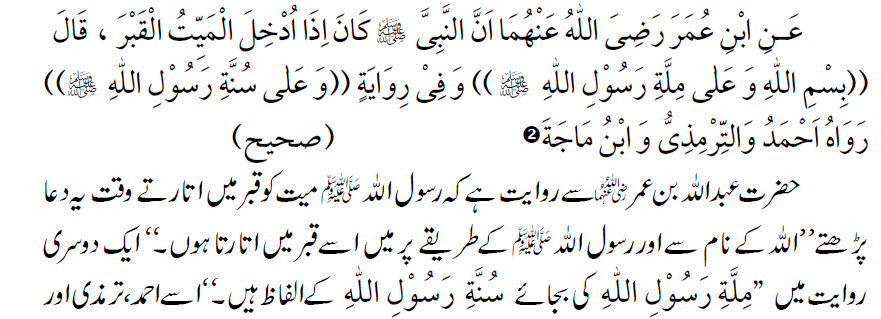For a quick recap of what to do if some one dies, here is a summary of procedures to be followed:
- Close the eyes of the deceased.
- Cover the body with a sheet.
- Get his loan paid if any.
- Before washing the body, check for any impurities and remove it. Press lightly the stomach in order to expel any remnants from it if any.
- Start with ablution.
- Sidr leaves may be used in the water for washing.
- Washing should be done at least 3 times or 5 or 7 as required.
- In the last wash camphor may be used with water.
- For females the hair after washing should be combed, braided in 3 braids and then placed behind her back.
- Private parts of the deceased should be concealed all the time with a sheet of cloth during washing.
- The shrouding (Kafan) consists of 3 wrapping sheets for a male and 5 for a female (white recommended).
- Outer Sheet (for both).
- Upper body (for both).
- Lower Body (for both).
- Under arm pits to thighs (for females).
- Cover for head and hair (for females).
- It is recommended that those who performed the washing should take a bath afterwards.
- For janaza prayers, the Imam should stand by the middle of a female body, and by the head for a male body.
- Janaza prayer has no Rukuh, Sujud, Athan, or Iqama. There are four Takbeers in this prayer:
- After 1st Takbeer – Recite Thana and Surah Fatiha like in normal prayers.
- After 2nd Takbeer – Recite Durood like it is done in normal prayers.
- After 3rd Takbeer – Supplicate for the deceased.
- After 4th Takbeer – Make Salam to finish the prayers like it is done in normal prayers.
- Supplications for the deceased are as under:
- Recite both or any one of the above supplications in the prayers of janaza.
- If deceased is a child it is recommended to recite the following supplication:
- One closest to the deceased should lay the body in the grave, feet first.
- While laying the body in the grave following should be recited:
- The grave should not be higher than one Balisht (space from the thumb to the end of the little finger when extended).
- It is forbidden to plaster the grave or construct anything over it.
- After burial supplicate for the deceased.








